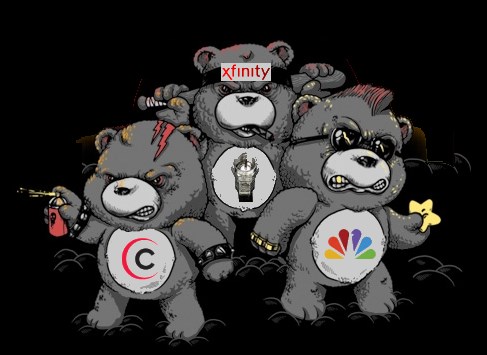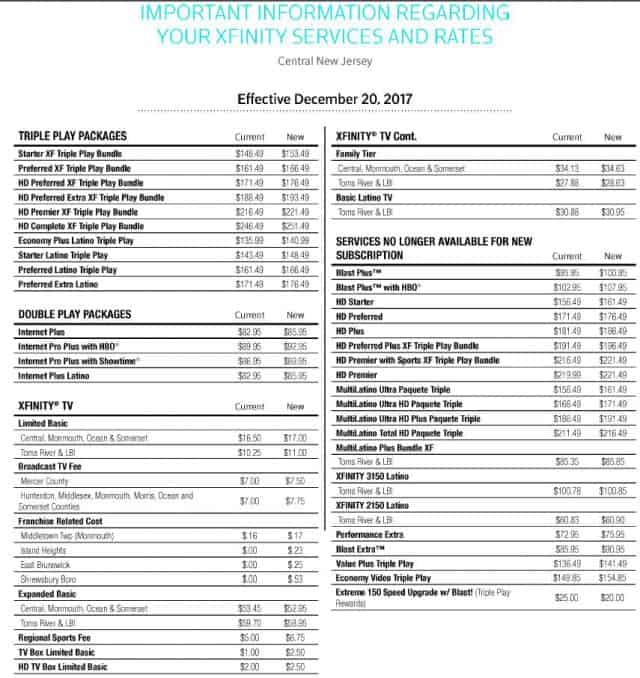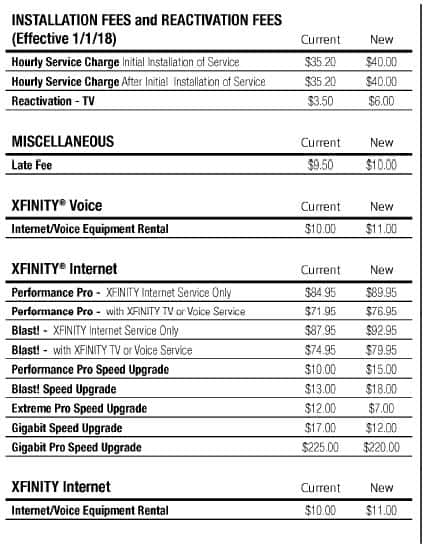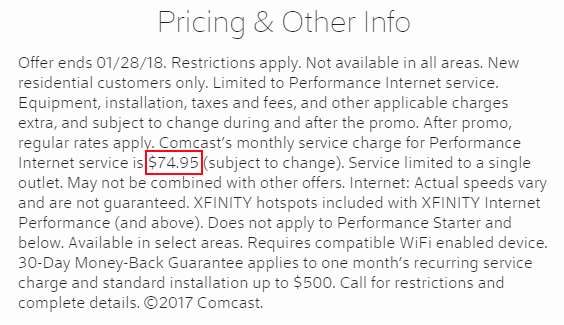
Rep. Marsha Blackburn (R-Tennessee, but mostly AT&T and Comcast)
Rep. Marsha Blackburn, who claims to represent the interests of voters in Tennessee but generally prefers the views (and campaign contributions) from AT&T and Comcast, is the first Republican to propose a bait-and-switch “net neutrality” broadband bill she claims will protect a free and open internet, but will actually prohibit net neutrality as America has known it over the last two years.
“No blocking. No throttling. The Open Internet Preservation Act will ensure the internet is a free and open space,” Blackburn tweeted to her followers shortly after giving an exclusive interview introducing her bill to Breitbart News. An early copy was also furnished to TechFreedom, an industry-funded front group that has opposed net neutrality. “This legislation is simple, it provides light-touch regulation so companies can invest and innovate, and make sure our internet is up to 21st century standards.”
Congresswoman Blackburn hopes you will take her word on that and not bother to actually read and understand what her bill actually does to the concept of a free and open internet.
We did read the bill and are prepared to help you understand it.
No overt censorship but plenty of “reasonable network management”
Blackburn’s bill non-controversially forbids the censorship of “lawful content, applications, services, or non-harmful devices.” Virtually every ISP in the country has already volunteered they have no intention of censoring legal content on the internet. But Blackburn’s bill includes a safety clause that allows ISPs to avoid accusations of tinkering with traffic — “reasonable network management,” which in this case is vaguely defined in the bill as “a practice that has a primarily technical network management justification.” Blackburn also defines a network management practice “reasonable” if “it is primarily used for and tailored to achieving a legitimate network management purpose, taking into account the particular network architecture and technology of the broadband internet access service.”
Despite that word salad, there is nothing in her bill that clearly defines what is “legitimate” and what is not. Comcast, for example, has its own view about how it manages and prices traffic on its broadband service. Stream XFINITY content and it does not count against your Comcast cap. Stream Hulu and it does. Comcast claims that is fair if one considers the ‘particular network architecture’ that delivers Comcast’s own content is allegedly different from the public internet. Blackburn’s bill would treat data caps, zero rating, and Comcast’s version of “fairness” as all perfectly legal.
Large telecommunications companies have insisted there is no need to pass laws or enact regulations governing internet censorship because they would never contemplate blocking legal content, making the need for legislation unnecessary. But they are strongly likely to favor her bill, creating a direct contradiction to their repeated insistence net neutrality was “a solution in search of a problem.” There is a reason for the sudden support among many Republicans for Blackburn’s concept of net neutrality — blocking regulatory agencies from oversight of internet service provider interference and abuse.
The “Specialized Services” Hindenburg-sized loophole
 Blackburn’s bill covers all the bases for the telecom industry she routinely supports.
Blackburn’s bill covers all the bases for the telecom industry she routinely supports.
Most importantly, her bill creates an enormous loophole allowing internet service providers to offer “specialized services” to the public any way they choose, as long as they do not “threaten the meaningful availability of broadband internet access service or [offer services] that have been devised or promoted in a manner designed to evade the purposes of this section.”
Blackburn defines a “specialized service” as “services other than broadband internet access service that are offered over the same network as, and that may share network capacity with, broadband internet access service.’’
That effectively means any website, streaming service, cloud storage or app could qualify as a “specialized service.” Blackburn’s bill would allow an ISP to establish paid prioritization (fast lanes) for selected content, usage cap non-preferred content, or steer web users to preferred websites and services. It effectively makes all internet content open to ISP manipulation. Just to be certain ISPs are protected from net neutrality rules for next generation applications and services, her bill also permanently forbids regulatory agencies from expanding the definition of net neutrality.
Obliterating the concept of states’ rights
Republicans are usually strong proponents of limiting the power of the federal government, especially when it comes to preempting state laws, but that concept is turned on its head when Big Telecom campaign contributions are at stake. Blackburn completely abandons any pretense of a state being able to write its own laws governing internet openness by specifically banning that option:
“No State or political subdivision of a State shall adopt, maintain, enforce, or impose or continue in effect any law, rule, regulation, duty, requirement, standard, or other provision having the force and effect of law relating to or with respect to internet openness obligations for provision of broadband internet access service.”
Permanently assuring ISPs easy court victories if net neutrality violations are uncovered
 Blackburn’s bill ignores several years of court rulings on net neutrality cases that have called out the flaw of the FCC’s earlier dependence on defining the internet as an “information service” subject to oversight under Section 706 of the 1996 Telecom Act. The courts have ruled this foundation is inadequate to enforce net neutrality. The foundation that has proved adequate and has so-far survived court challenge exists in Title II of the Communications Act, made applicable when the internet was redefined as a common carrier “telecommunications service.” Rep. Blackburn’s bill would return net neutrality enforcement to the same flawed authority courts have already ruled does not apply, neutering net neutrality in the courts.
Blackburn’s bill ignores several years of court rulings on net neutrality cases that have called out the flaw of the FCC’s earlier dependence on defining the internet as an “information service” subject to oversight under Section 706 of the 1996 Telecom Act. The courts have ruled this foundation is inadequate to enforce net neutrality. The foundation that has proved adequate and has so-far survived court challenge exists in Title II of the Communications Act, made applicable when the internet was redefined as a common carrier “telecommunications service.” Rep. Blackburn’s bill would return net neutrality enforcement to the same flawed authority courts have already ruled does not apply, neutering net neutrality in the courts.
Critics contend Rep. Blackburn’s real motive is to permanently end oversight of large cable and phone companies and prevent federal agencies from coming to the rescue of content providers and consumers.
“Blackburn’s legislation fails at the very thing it claims to accomplish. It prohibits a few open-internet violations, but opens the door to rampant abuse through paid-prioritization schemes that split the internet into fast lanes for the richest companies and slow lanes for everyone else,” said Craig Aaron, Free Press Action Fund President and CEO. “This bill’s true goal is to let a few unregulated monopolies and duopolies stifle competition and control the future of communications.”
“Congress must reject last week’s FCC ruling and restore Title II authority at the agency,” Aaron added. “The 2015 rules worked extraordinarily well from the get-go, with investment and innovation flourishing across the sector. That’s because they gave the FCC the authority to prevent paid prioritization and other forms of discrimination, while promoting competition, open markets, universal service and equal access.”
 Charter Communications has ended more than a decade-long relationship between Earthlink and Time Warner Cable by quietly pulling the plug on Earthlink’s cable broadband service.
Charter Communications has ended more than a decade-long relationship between Earthlink and Time Warner Cable by quietly pulling the plug on Earthlink’s cable broadband service.

 Subscribe
Subscribe Charter Communications cable TV customers will soon see sweeping rate increases on their cable bills as the cable company announces its 2018 “rate adjustments” that will begin to take effect as early as next month in some markets.
Charter Communications cable TV customers will soon see sweeping rate increases on their cable bills as the cable company announces its 2018 “rate adjustments” that will begin to take effect as early as next month in some markets.




 Blackburn’s bill covers all the bases for the telecom industry she routinely supports.
Blackburn’s bill covers all the bases for the telecom industry she routinely supports. Blackburn’s bill ignores several years of court rulings on net neutrality cases that have called out the flaw of the FCC’s earlier dependence on defining the internet as an “information service” subject to oversight under Section 706 of the 1996 Telecom Act. The courts have ruled this foundation is inadequate to enforce net neutrality. The foundation that has proved adequate and has so-far survived court challenge exists in Title II of the Communications Act, made applicable when the internet was redefined as a common carrier “telecommunications service.” Rep. Blackburn’s bill would return net neutrality enforcement to the same flawed authority courts have already ruled does not apply, neutering net neutrality in the courts.
Blackburn’s bill ignores several years of court rulings on net neutrality cases that have called out the flaw of the FCC’s earlier dependence on defining the internet as an “information service” subject to oversight under Section 706 of the 1996 Telecom Act. The courts have ruled this foundation is inadequate to enforce net neutrality. The foundation that has proved adequate and has so-far survived court challenge exists in Title II of the Communications Act, made applicable when the internet was redefined as a common carrier “telecommunications service.” Rep. Blackburn’s bill would return net neutrality enforcement to the same flawed authority courts have already ruled does not apply, neutering net neutrality in the courts.